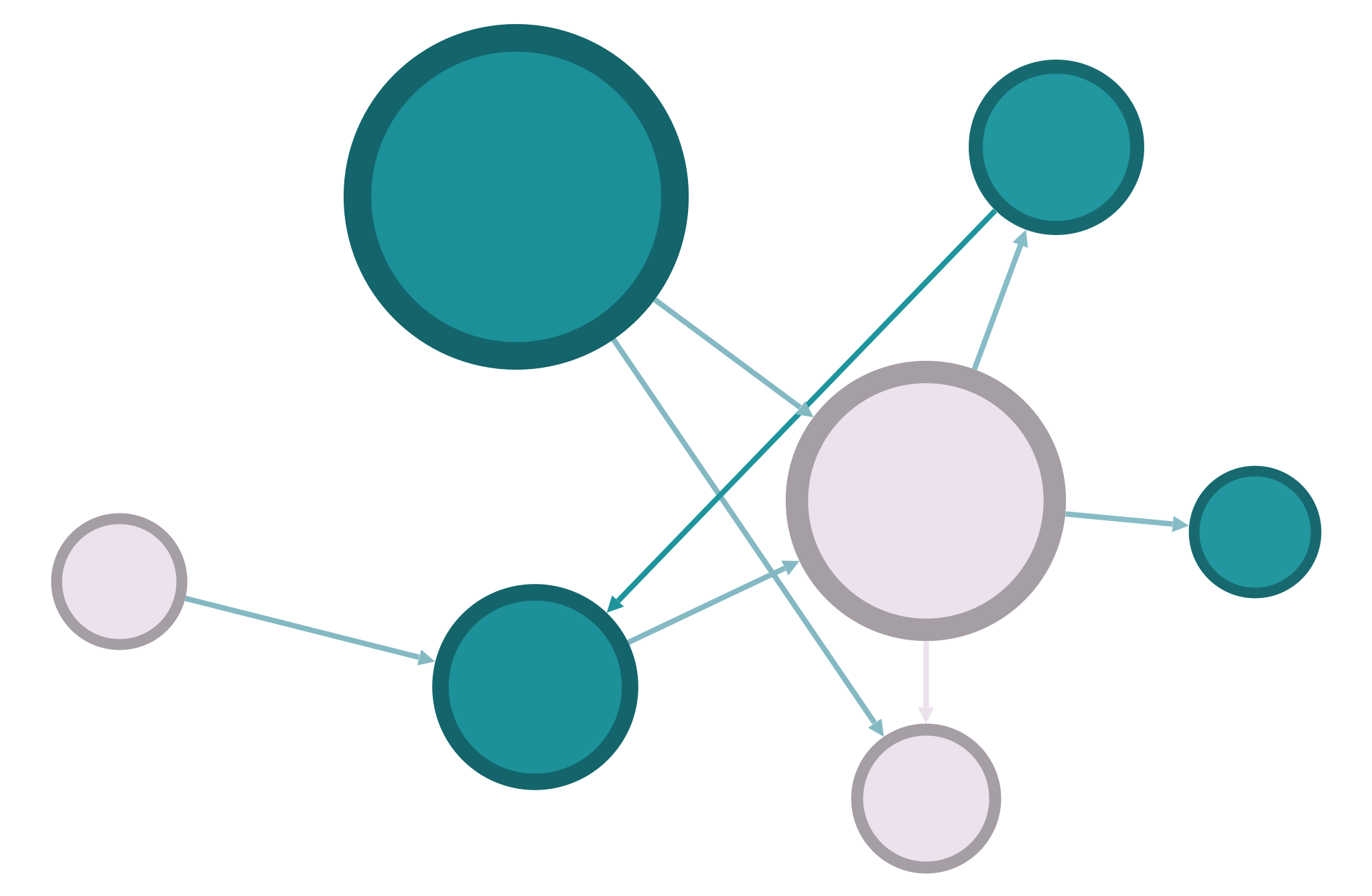Presentation: Shared Challenges#
Open House date: Tuesday 7 May at 12:50pm
All semester long, you’ve worked with your classmates to think through an array of complex network analysis methods. Now that you’re working on your final projects, it’s time to share this knowledge with the wider world!
In groups you will discuss your third (predictive) network analysis projects and identify a shared challenge that will become the topic of your presentation. A shared challenge is something that applies to all of your projects: a topic, process, or method that you all worked with in different ways. Your goal is to explain this shared challenge to an audience of people who might not know anything about network analysis. You will need to clearly explain (1) the challenge itself, (2) any background information necessary to understand the problem, and (3) how it applies to each of your projects.
Examples of shared challenges might be:
Change over time: everyone in the group is working on how networks change over time, but some people are using multilayer networks, others are looking at cascades, and others are using a machine learning model.
Supplementing datasets: everyone in the group needs to add additional data to their network in order to answer their research questions. But they’re each using the additional data to do something different.
Biological network: everyone in the group is working on a biological or ecological network dataset. Because biological networks have different properties than social networks, each group member has some different approaches in mind.
As the above examples illustrate, your shared challenge can come from any stage of the data analysis process: it can be about data collection and wrangling, similar subject matter, or a shared methodological problem. No matter what you choose, the challenge should be clearly defined and it should apply to everyone in the group.
On the final day of class, we’ll have an open house for you to present your shared challenges to me and the other attendees! The central goal here is to practice explaining network analysis to others clearly and in detail. Your presentation should be about 5 minutes long—short enough that you can repeat it as different people join you to listen. Think of this a bit like the poster session: you’ll have a presentation set up, and attendees will walk by to hear what you have to say and ask questions. You should be prepared to give an overview of your shared challenge and how it applies to each of your projects, and you should also be ready to answer questions and dig more deeply into the details if asked.
You will prepare a 7-slide deck that describes your shared challenge and gives you something to talk through. These will be set up on a short loop during the open house, but you can also stop them and return to a specific slide if you need to. The slide structure should include: (1) a title slide that includes all of your names, (2 & 3) two slides defining and explaining your shared challenge, and (4-7) four slides, one for each of your projects showing how the challenge applies to your network project specifically. You should work to make these slides visually engaging as you’ll be using them to grab people’s attention.
I will assign the groups and post them on Sakai. After the presentation, you’ll fill out a short form to assess your own contributions and those of your groupmates. You’ll be assessed based on your prepared presentation, your ability to answer questions about your presentation, and your team-assessment form.
